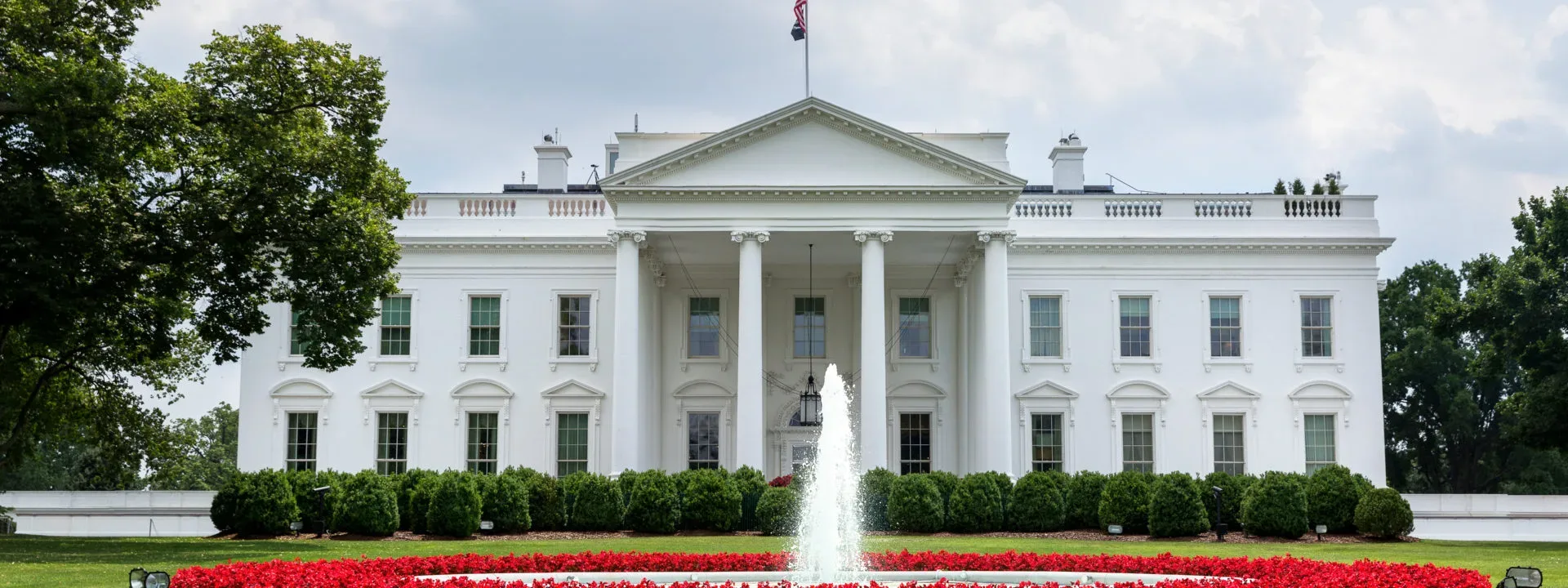Both Biden and Trump are running for the presidency in 2020, and this battle for the throne, in Trump’s case for the second term, is rather intense. Both candidates promised to increase funding in scientific ventures including quantum computing. The question is, between Biden and Trump, who is the better choice for Quantum Computing research in the United States?
Biden does talk about quantum computing research. On his official website, it is stated that if he does get elected, he will ensure the United States’ full potential will be realised. This includes ‘investments in research and development to spur advances in clean energy, quantum computing, artificial intelligence, 5G, and high-speed rail [1]’. This is also the official stance of the Democratic Party, which Biden is running for. From this, we can see that Biden has plans for accelerating the United States’ quantum computing development.

That Biden cares for American quantum computing research is exciting for quantum computing in the United States. In fact, in one of our previous articles, we mentioned that ‘chief executives of four major U.S. tech companies — Google, Microsoft, Nvidia and Tesla — emigrated to the United States [2]’. These chief executives support Biden and are involved in quantum computing research. They are not the only ones doing so, as around 24 award-winning computer scientists have pledged their support for Biden and criticised Trump’s immigration policies.
So far, Biden does have an advantage for American quantum computing. He has the support of four large companies deeply involved in quantum computing, the backing of expert computer scientists, and a will to increase funding on the field as a whole. Surely he will benefit the quantum community in the United States, right?
While these are very important advantages, there are some other factors to consider. According to Protocol, Biden does not have the tech advisors that his predecessors have. Stef Feldman is his policy director, and he oversees all policy issues, including technology [3]. He also receives informal tech advice from influential people such as Amazon general counsel David Zapolsky, Facebook board member Jeff Zients, and former board member Erskine Bowles [4]. Amazon is heavily involved in quantum computing, its Braket platform serving as an important access point to various quantum computing companies’ products. Jake Sullivan, a senior advisor to Biden, stated that Trump is ‘fixated on steel, coal and battleships, instead of quantum computing, AI (artificial intelligence) and biotechnology [5].’
These figures are strong allies, and yet for all the amount of support he has, Biden does not compare to Trump when it comes to quantum computing. The last statement is unfortunately not true, and we will explain why in the following paragraphs. Biden does have some important allies, though as much as allies are good for him, he has not done anything for quantum computing research itself.
Trump, on the other hand, has aggressively pushed for increased spending on quantum computing research and AI. This past February saw Trump proposing to spend $2 billion on AI and $860 million on quantum computing. According to The Hill, the quantum computing research will be led by the Department of Energy [6]. The reason this was pushed was due to ‘fierce global competition [7]’. This is true, as countries worldwide are trying to stay ahead in the quantum computing race. The proposal part of the $4.8 trillion budget put forward by the White House. What’s more, $50 million will go to AI and quantum education as well as creating job opportunities. The White House will partner with educational institutions for this, building up future talent for the country’s sake.
In August, Trump’s administration announced that three quantum computing centres will be established across the United States, worth around $75 million [8]. These centres will accelerate quantum development as well as train future quantum computing students to become researchers themselves. Established at the University of California Berkeley, the University of Illinois, and the University of Colorado, each of them will focus on a different area of quantum computing.
Even during January this year, a bill was introduced to bolster quantum computing research. In accordance with Trump’s wish to transition into ‘industries of the future [10]’, it also intends to invest in AI and next-generation wireless technology. This was also a bipartisan effort, meaning both parties were in agreement with passing it. The bill stipulated that the American government will increase spending on these fields by up to $10 billion by 2025.
In short, we can see that Biden has an interest in furthering quantum computing research in America, and that is also the Democratic Party’s goal. Trump has an extensive track record of funding research and supporting quantum companies. Who do you think will benefit the quantum community in the United States more?
I think its safe to say that Trump is concerned about making the US competitive against China and that he wants to support home grown technologies, especially those that promote national security. With the promise that Quantum could impact our security protocols then no-wonder Trump as many would say has become a natural ally of Quantum technologies. Certainly many in academic space will be concerned on limits to bringing in talent to the US which may hinder the ability to innovate. Certainly this looks to be a very nuanced debate. Whatever you think of Trump, he certainly has pushed the Quantum agenda.
Who do you think will push Quantum innovation in the coming term? Do let us know.
References
- 1. https://joebiden.com/americanleadership/
- 2. https://quantumzeitgeist.com/computing-pioneers-endorse-joe-biden-citing-trump-immigration-crackdown/
- 3. https://www.protocol.com/joe-biden-campaign-tech-policy-leadership
- 4. https://www.axios.com/biden-camps-bridges-to-tech-d87ab43d-2aa4-4f96-a066-013ff7883fcb.html
- 5. https://www.japantimes.co.jp/news/2020/05/13/world/politics-diplomacy-world/joe-biden-trump-china-coronavirus/
- 6. https://thehill.com/policy/technology/513648-trump-administration-announces-1-billion-investment-in-ai-quantum-computing
- 7. https://www.wsj.com/articles/trump-wants-to-double-spending-on-ai-quantum-computing-11581378069
- 8. https://thehill.com/policy/cybersecurity/508305-trump-administration-establishes-75-million-quantum-computing-centers
- 9. https://thehill.com/policy/technology/478273-lawmakers-introduce-bill-to-bolster-artificial-intelligence-quantum
- 10. https://thehill.com/policy/technology/478273-lawmakers-introduce-bill-to-bolster-artificial-intelligence-quantum

